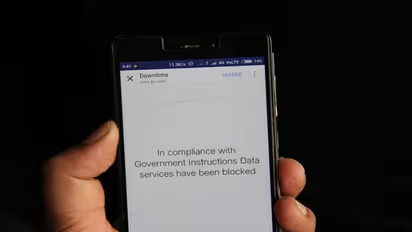Indian Govt blocked over 28,000 URLs in 2024 to tackle pro-Khalistan propaganda, hate speech & fraud

Synopsis
The Indian government intensified its digital vigilance, blocking 28,079 URLs across various social media platforms in 2024 alone.
To curb online threats, the Indian government intensified its digital vigilance, blocking 28,079 URLs across various social media platforms in 2024 alone. The move, aimed at countering content harmful to national security and public order, highlights the growing complexities of maintaining online integrity in a hyper-connected world.
A report by Indian Express reveals that the blocked content largely targeted pro-Khalistan separatist propaganda, hate speech, and other materials flagged under Section 69A of the Information Technology Act. This provision empowers the government to restrict access to digital content that poses a threat to India’s sovereignty, security, or public harmony.
Social media giants Facebook (now Meta) and X (formerly Twitter) bore the brunt of these actions, with each platform seeing over 10,000 URLs blocked. Other platforms, such as YouTube, Instagram, and WhatsApp, also faced significant takedowns.
“Since 2021, around 10,500 URLs related to the Khalistan referendum have been blocked under section 69 (A) of the IT Act. Also, many mobile apps launched for spreading the Khalistan referendum were blocked by the department concerned,” the report stated.
The three-year data reveals a sharp escalation in takedowns:
- Facebook: The platform saw 10,976 URLs blocked, including 3,159 in 2024 (up to September).
- X (formerly Twitter): 10,139 URLs were restricted, with nearly 2,950 removed this year.
- YouTube: 2,211 URLs have been taken down over three years, showcasing the platform’s susceptibility to problematic content.
- Instagram: A marked increase, with 1,029 URLs blocked in 2024 alone.
- Telegram and WhatsApp: Though fewer in number, these platforms saw content linked to fraud and misinformation flagged and removed.
The scrutiny has extended beyond traditional social platforms, targeting links that directed users to malicious apps or fraudulent schemes.
“Probe has revealed that most of the blocked Facebook URLs were used to take users to third-party websites or app stores from where they were either directed to download Android package kits or WhatsApp groups to fraud them through trading, investment, or work-from-home type frauds,” adds the report.
Also read: Woman demands Rs 40 lakh alimony from husband just one month after marriage (WATCH)
Find the latest Technology News covering Smartphone Updates, AI (Artificial Intelligence) breakthroughs, and innovations in space exploration. Stay updated on gadgets, apps, and digital trends with expert reviews, product comparisons, and tech insights. Download the Asianet News Official App from the Android Play Store and iPhone App Store for everything shaping the future of technology.